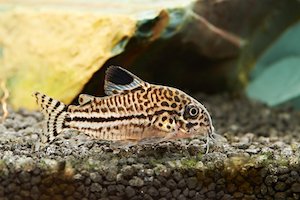When setting up and maintaining an aquarium, a common question that arises is whether fish help clean up waste, including feces.
While some fish are excellent scavengers, the idea that they actively eat poop is largely a myth. Let’s dive into the facts about fish behavior and the role they play in keeping your tank clean.
Do Fish Eat Poop?
In general, aquarium fish do not eat poop. While many species of fish forage for uneaten food and organic matter at the bottom of the tank, feces are not a part of their natural diet.
Fish may occasionally nibble on waste out of curiosity, but they quickly realize it’s not food. Relying on fish to consume poop is not a viable solution for tank maintenance.
Proper Tank Maintenance
Maintaining a clean and healthy aquarium involves regular water changes, proper filtration, and good feeding practices. Overfeeding leads to uneaten food and waste buildup, which can harm water quality and stress your fish.
A varied and nutritious diet ensures your fish are healthy and reduces the amount of waste produced. Using high-quality fish food and feeding in controlled portions can greatly minimize leftover food that contributes to waste.
Helpful Scavengers in Your Tank
While fish don’t typically eat poop, there are several species known as “scavengers” that help keep the tank clean by consuming uneaten food and detritus.
Corydoras Catfish
Corydoras catfish are peaceful bottom-dwellers that help clear up uneaten food from the substrate. They forage for small particles of food but do not consume feces. Their role as scavengers makes them a great addition to community tanks.
Plecostomus (Plecos)
Plecos are another popular species for helping to clean algae and uneaten food in aquariums. These algae-eating catfish are often thought to eat poop, but this is a misconception. They specialize in scraping algae from tank surfaces and may nibble on leftover food, but poop is not part of their diet.
Loaches
Like Corydoras, loaches are bottom-dwellers known for their scavenging habits. They help clean up excess food and debris from the tank floor. However, they do not eat feces and should not be relied upon for waste management.
The Myth of Coprophagy in Fish
Coprophagy, or the consumption of feces, is not common or healthy behavior for aquarium fish. In the wild, some species may resort to coprophagy in extreme circumstances, such as in nutrient-poor environments where food is scarce. However, in a well-maintained aquarium with regular feeding and cleaning practices, fish should not engage in this behavior.
Ensuring a Healthy Tank Environment
To maintain a healthy ecosystem in your aquarium, it’s crucial to:
- Perform regular water changes to remove waste and toxins.
- Use a quality filtration system to keep water parameters stable.
- Avoid overfeeding, which leads to excessive waste.
- Include scavenging fish, snails, or shrimp to help with leftover food, but don’t rely on them for full tank maintenance.
In conclusion, while fish like Corydoras, Plecos, and loaches are great for cleaning up uneaten food and debris, they are not “poop-eaters.” The key to a clean and healthy tank lies in proper care and maintenance, not relying on fish to eat waste.




